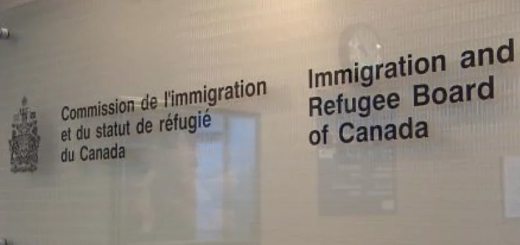The Supreme Court Upholds Security Certificate Regime: Canada v Harkat
Canada has used the process of issuing a “certificate of inadmissibility,” also known as a “security certificate,” to detain and remove foreign nationals suspected of being involved with terrorist activity. That process is legislated under the Immigration and Refugee Protection Act, SC 2001, c 27 [IRPA], which has been the subject of several Charter challenges reaching the Supreme Court of Canada (“SCC”). In Canada (Citizenship and Immigration) v Harkat, 2014 SCC 37 [Harkat], the constitutional validity of the IRPA’s provisions was challenged yet again. In this case, the challenge came from Mohamed Harkat, a man suspected of being a “sleeper agent” working with terrorist organizations.
The Legislative Scheme
The IRPA allows the Canadian government to issue a security certificate that renders a non-citizen “inadmissible” to Canada where evidence gives reasonable grounds to believe that an individual is a threat to national security. After the certificate is issued, the matter is then referred to the Federal Court for a determination of its reasonableness. If the certificate’s issuance is considered reasonable, the person named on the security certificate is subject to a removal order and can be arrested and detained during the removal procedures. Consequently, the security certificate regime allows the government to detain a foreign national for an extended period of time and eventually remove him based on allegations supported by a low threshold of evidence. This threshold stands in contrast to the higher, “beyond a reasonable doubt,” standard applied in criminal cases.
In responding to the government’s allegations, an individual subject to a security certificate receives summaries of the evidence against him, but the summaries exclude any information the government deems a threat to national security if disclosed. In reaction to the SCC’s decision in Charkaoui v Canada (Citizenship and Immigration), [2007] 1 SCR 350 [Charkaoui I], in which parts of the IRPA’s certificate scheme were struck down, the IRPA now requires a judge to appoint a special advocate (a security-cleared lawyer) to help protect the interests of the person subject to the certificate.
Judicial History
In Charkaoui I, the SCC held that the IRPA, as it then was, violated the claimants’ rights not to be deprived of life, liberty, and security of the person under section 7 of the Charter. That decision rested on finding that the IRPA did not allow judges to make decisions based on all relevant facts and law; did not give individuals the ability to have representation in closed proceedings; and violated the principle that a “person must have the ability to know and meet the case against him, because there was not full disclosure of the government’s case for review” (para 8). In sum, a base level of procedural justice had to be met despite the barriers to disclosure.
In these proceedings, the first security certificate was issued against Mr. Harkat in 2002, and a subsequent one was issued after the resolution of Charkaoui I. Mr. Harkat challenged the disclosure process and wanted to examine the Canadian Security Intelligence Service (“CSIS”) human sources of intelligence. In addition, Mr. Harkat challenged the amended security certificate regime. Justice Noël dismissed these claims, and, in considering the evidence before him, he also concluded that the security certificate was reasonable. In Justice Noël’s view, Mr. Harkat was not credible and the evidence provided reasonable grounds to support the allegations of his involvement with a terrorist organization as a sleeper agent.
The Federal Court of Appeal (“FCA”) agreed that the legislative scheme was constitutional, but it disagreed with the lower court in regards to whether a class privilege (a prima facie presumption that the communication is privileged and thus, inadmissible) protected CSIS human sources. Additionally, the FCA excluded some of the evidence considered by Justice Noël. As such, the Minister of Citizenship and Immigration and the Minister of Public Safety and Emergency Preparedness appealed to the SCC seeking to uphold Justice Noël’s reasonableness finding and also seeking to affirm a privilege protecting CSIS human sources. Mr. Harkat also cross-appealed on several issues including the findings of the IRPA’s constitutionality and the process of his reasonableness hearing.
The Court Upholds the IRPA
Does the IRPA Scheme Violate the Charter?
Mr. Harkat made several arguments alleging that the security certificate regime did not provide him with fair procedures and thus violated his rights under section 7 of the Charter. Mr. Harkat argued that the summaries provided on the closed record were too vague and did not allow him to know and meet the case against him. In response, the SCC held that a person must be “reasonably informed” of the case against him or her. The Court continued that, if this standard were not met, then the IRPA’s requirements would go unsatisfied, and a judge would not find a security certificate reasonable. Similarly, Mr. Harkat argued that the restrictions placed on his communications with his special advocates were unconstitutional. The SCC rejected this argument, stating that, while imperfect, the scheme “does not violate the named person’s right to know and meet the case against him, or the right to have a decision made on the facts and the law” (para 77).
Are CSIS Human Sources Covered by Privilege and Can They Be Cross-examined?
The majority refused to recognize a class privilege for CSIS human sources. However, Chief Justice McLachlin noted that this refusal did not mean that those sources were not unprotected by the IRPA. In her view, the legislative scheme provides broad protection by disallowing the public disclosure of information that is injurious to either national security or persons. In contrast, dissenting on this issue alone, Justices Abella and Cromwell held that confidentiality should be protected by a class privilege akin to those recognized in criminal law cases.
Did the Designated Judge Err in Refusing to Exclude the Summaries of Intercepted Conversations?
Mr. Harkat argued that CSIS’s destruction of the original notes and recordings that formed the summaries disclosed to him prejudiced his ability to defend himself against the government’s allegations. The SCC conceded that the destruction violated the Canadian Security Intelligence Service Act, RSC 1985, c C-23, compromised the functions of judicial review, and ultimately breached section 7 of the Charter. However, in its remedy analysis under section 24(1) of the Charter, the SCC held that the inclusion of the summaries did not “undermine the integrity of the justice system” (para 99).
Did the Ministers Breach Their Duties of Candour and Utmost Good Faith?
The special advocates argued that these duties required the ministers to ask foreign intelligence agencies for the evidence they had relating to the allegations of terrorist activity against Mr. Harkat. The SCC rejected this argument, holding that it would amount to the advocates forcing the minsters to conduct an investigation in a fashion they preferred.
Were the Proceedings Against Mr. Harkat Fair?
Mr. Harkat argued that a stay should be ordered. The SCC held that a stay should be ordered only in the clearest of circumstances and that this was not such a case. Mr. Harkat failed to show that the proceedings were unfair and that state conduct undermined the judicial system.
Did the Designated Judge Err in Concluding that the Security Certificate Was Reasonable?
All in all, the SCC found no palpable and overriding errors in the trial judge’s decision to warrant interfering with Justice Noël’s evaluation of the facts.
Given the above-noted findings, the appeal was allowed in part, and Mr. Harkat’s cross-appeal was dismissed.
A Foregone Conclusion?
Following recent Charter jurisprudence, one may be surprised to see in Harkat the SCC refrain from striking down legislation under section 7 of the Charter. However, considering that the security certificate regime had been declared unconstitutional before Harkat and that Parliament had a chance to reform the IRPA, the result in this case is rather predictable. The majority’s reasons give credence to Peter Hogg and Allison Bushell’s Dialogue Theory — the idea that a court’s ruling on the constitutionality of a law or government action is matched by the legislature’s ability to “respond” to that decision using the legislative process. As stated by Chief Justice McLachlin, “Parliament amended the IRPA scheme with the intent of making it compliant with the s. 7 requirements expounded in Charkaoui I, and it should be interpreted in light of this intention” (para 55).
All in all, after litigation spanning more than a decade and more than one trip to Canada’s top court, Mohamed Harkat has lost his bid to quash the removal order against him. In Harkat, the SCC has held that, while not perfect, the security certificate process in the IRPA passes constitutional muster.








Join the conversation